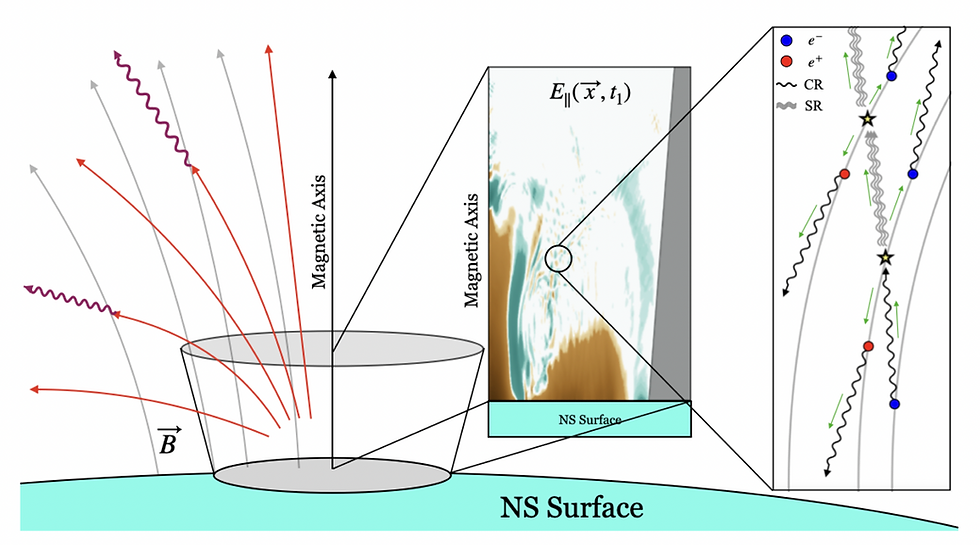Novel Constraints on Axions Produced in Pulsar Polar Cap Cascades
- Christoph Weniger
- Nov 2, 2022
- 1 min read
Authors: Dion Noordhuis, Anirudh Prabhu, Samuel J. Witte, Alexander Y. Chen, Fábio Cruz, Christoph Weniger

Axions can be copiously produced in localized regions of neutron star magnetospheres where the ambient plasma is unable to efficiently screen the induced electric field. As these axions stream away from the neutron star they can resonantly transition into photons, generating a large broadband contribution to the neutron star's intrinsic radio flux. In this work, we develop a comprehensive end-to-end framework to model this process from the initial production of axions to the final detection of radio photons, and derive constraints on the axion-photon coupling, gaγγ, using observations of 27 nearby pulsars. We study the modeling uncertainty in the sourced axion spectrum by comparing predictions from 2.5 dimensional Particle-in-Cell simulations with those derived using a semi-analytic model; these results show remarkable agreement, leading to constraints on the axion-photon coupling that typically differ by a factor of no more than ∼3. The limits presented here are the strongest to date for axion masses 10−9eV≲ma≲10−5eV, and crucially do not rely on the assumption that axions are dark matter.
Full article: https://arxiv.org/abs/2209.09917


Comments